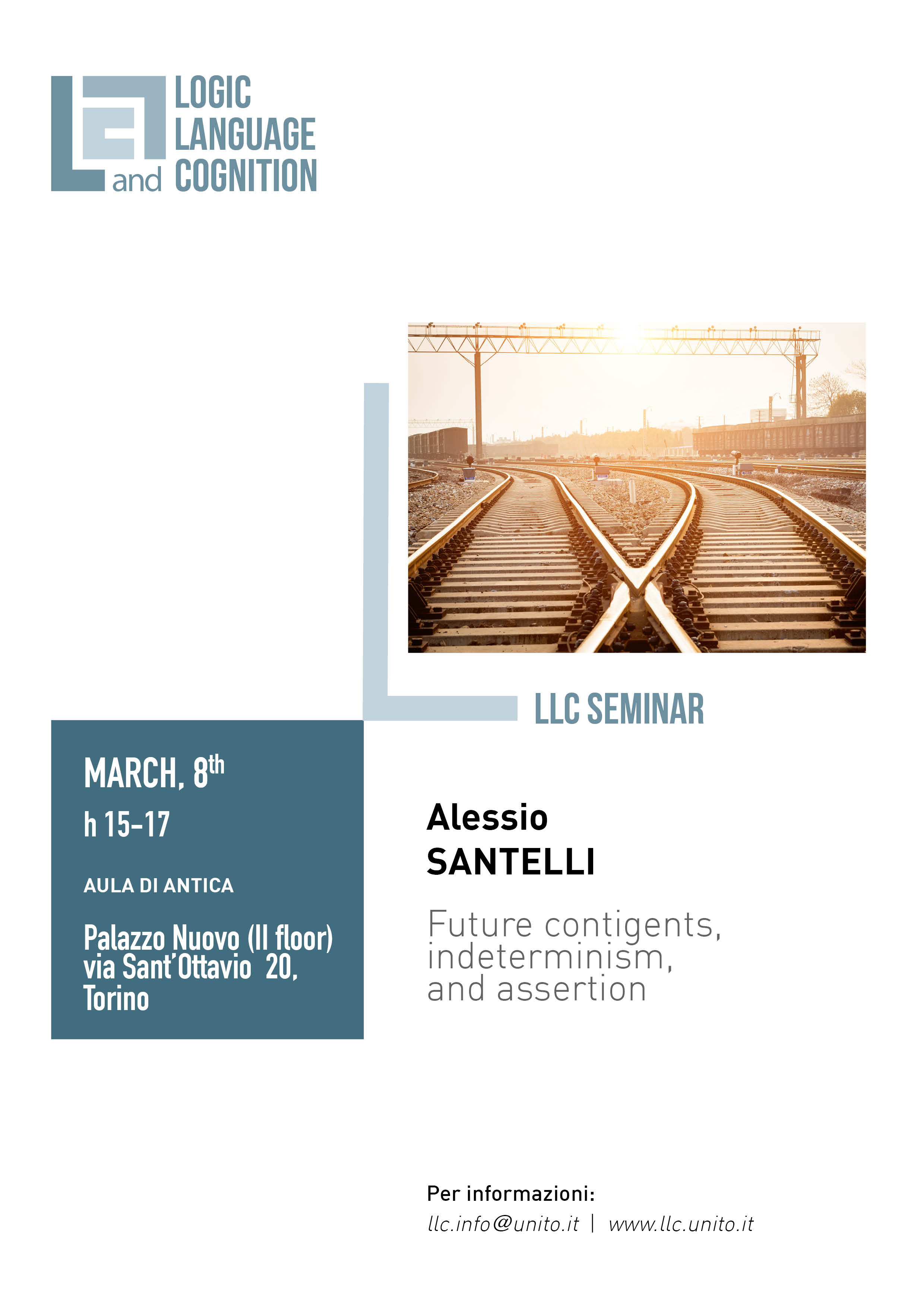FUTURE CONTIGENTS, INDETERMINISM, AND ASSERTION - Seminar: Alessio SANTELLI - Torino, 8 marzo 2018

8 March 2018
LLC Seminar
15.00 - 17.00
Aula di Antica
Palazzo Nuovo (Piano II)
via Sant'Ottavio 20, Torino
Abstract. This paper focuses on the assertability conditions of future contingents. Suppose that it is now open whether tomorrow there will be a sea battle. That is, it is objectively (as opposed to epistemically) possible that tomorrow a sea battle will occur and it is objectively possible that it won't. Suppose also that today I assert "there will be a sea battle tomorrow". How should we evaluate my assertion if, as the branching picture has it, in some possible histories it will be true that tomorrow there is a sea battle, whereas in some others it will be false - and none of them can be singled out as the history that is going to happen? Several attempts have been made to solve this puzzle, either by arguing that, albeit truth-valueless, future contingents are indeed assertable, or by rejecting the Aristotelian intuition that the openness of the future entails a failure of bivalence for future contingents. The paper examines the three most representative accounts of the first kind - namely, Richmond H. Thomason's (1970) Supervaluationism, Nuel Belnap's (2001) Double-time reference semantics and John MacFarlane's (2003, 2014) relativist semantics - and concludes that none of these theories, usually dubbed branching-time theories (BT-theories), is able to provide a persuasive answer as to why we comfortably assert future contingent statements. More specifically, it will be argued that the reason of their failure lies in the very assumption that makes the branching picture so attractive, namely that, in the absence of an actual history, future contingents cannot be true (false) as of the time of their utterance. Adapting a well-known objection raised by Gareth Evans (1985) against Prior's view on tensed propositions, it will be suggested that this assumption is less solid than expected since it leads to consequences that are far less plausible than those that BT-theorists are keen to avoid
Maggiori informazioni: www.llc.unito.it




